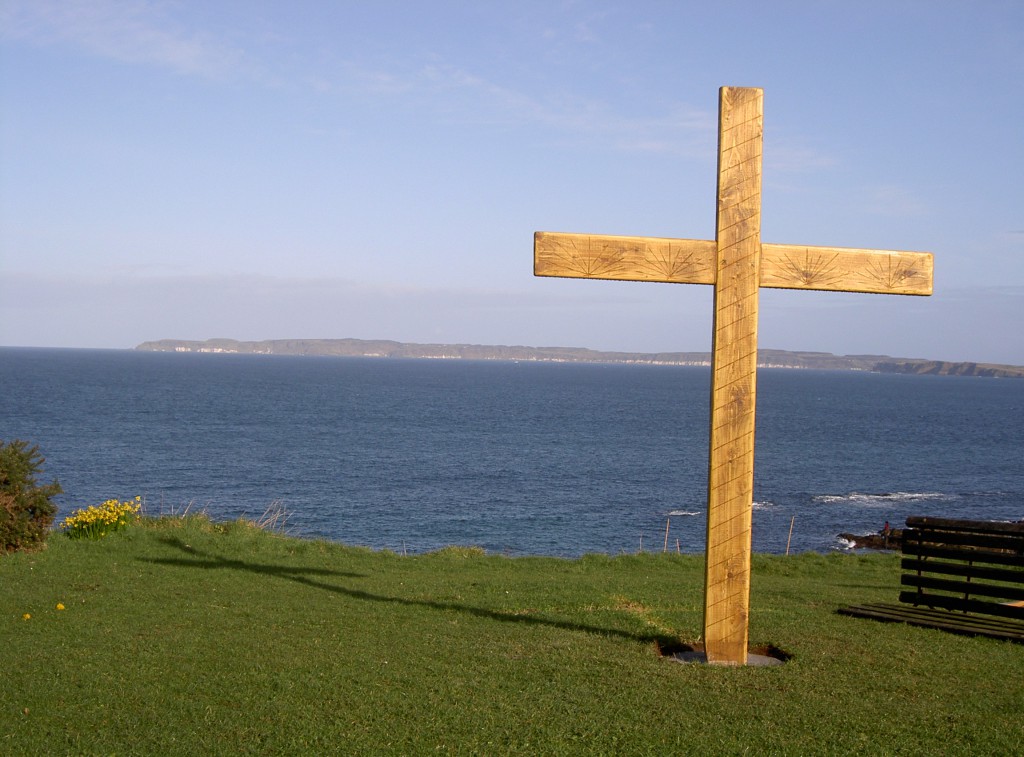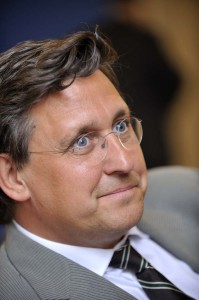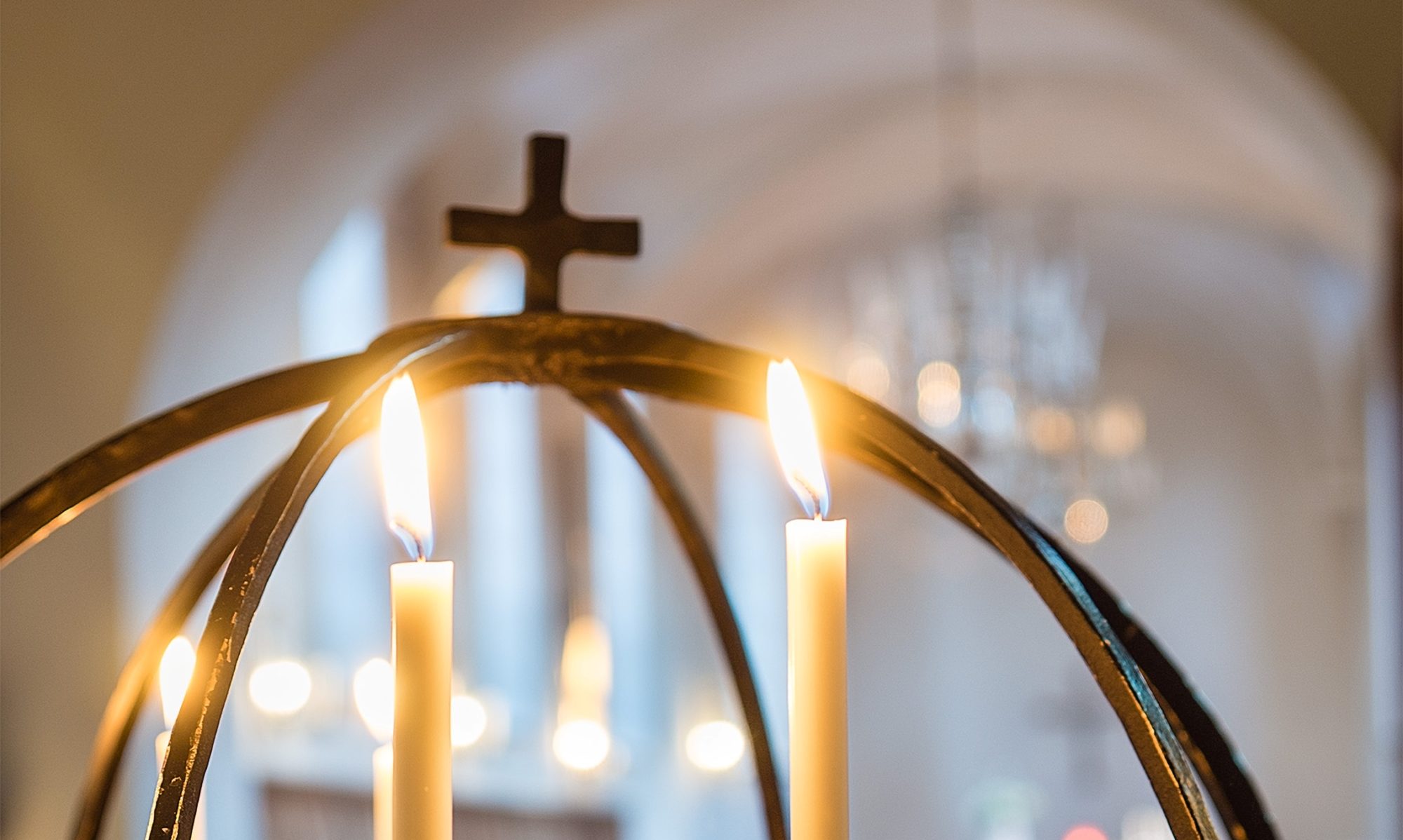 ‘Corrymeela is an ecumenical community of people committed to reconciliation and peace-building through the healing of social, religious and political divisions.’ (Corrymeela strategy 2013-2015)
‘Corrymeela is an ecumenical community of people committed to reconciliation and peace-building through the healing of social, religious and political divisions.’ (Corrymeela strategy 2013-2015)
Corrymeela is an inclusive Christian Community founded in 1965 by Reverend Ray Davey, assisted by a group of students from Queen’s University Belfast. The seeds for the Community grew from Ray’s experience as a prisoner of war during World War II. This, coupled with his witnessing of the Allied bombing of Dresden and its consequent loss of life, made an indelible impression on him.
Twenty years after the war Ray established a residential centre in Ballycastle where people of all faiths and backgrounds could come together and learn to live in community.
Now, Corrymeela hosts over 10,000 people a year in programmes of dialogue, learning, faith and encounter.
2015 is Corrymeela’s 50th year and we are honoured to host the 60th OIKOSNET Conference here in Northern Ireland. We would be delighted to welcome you.
Please put the 9th – 13th of September 2015 in your diary.
We look forward to the learning, the challenges and the fellowship. See you next year.
www.corrymeela.org
German Academies adopt a new Europe Concept
By Rüdiger Noll, Executive Secretary
At its most recent Assembly at Neudietendorf, the German Academies, under the roof of their umbrella organization EAD, adopted a new concept for making Europe a priority issue for the years to come.
The concept starts by recognizing that Europe is and must be a key reference point for reflection and action in the discourse of today´s issues. On the other hand, though, Europe for many people is far away and offers seemingly very few opportunities for getting engaged. Academies, therefore, are faced with the dilemma that the reflection on genuine European issues is not always met with a lot of interest. Nevertheless, bringing Europe closer to its citizens and finding ways for peoples´ participation in the political and decision-making process remains to be a crucial task also for church-related academies.
With the new concept, the Protestant Academies in Germany now commit themselves to increase the European dimension in their ongoing discourses and to also increase the participation from other European countries in their consultations. This is an important step towards taking into account the perspectives of Europeans with different backgrounds and from different traditions and contexts. Oikosnet Europe and its members have been identified as key partners in this effort. More than before, the German Protestant Academies want to live up to their commitment to Europe and to an open, transparent and regular dialogue across religious, cultural, political and economic borders.
In addition to this commitment, the EAD Assembly identified two “paradigmatic issues”, through which an alternative understanding of what Europe should be about will be made visible. In order to promote a just, sustainable and participatory Europe, consultations in the years to come will focus on what solidarity means in Europe and beyond as well as on the erosion of democratic structures and the role of civil society.
In April 2015, Directors and Study Leaders from German Academies will visit Brussels in order to explore these issues further.
For further information contact: noll@evangelische-akademien.de
A Year of Hands-On Work of the Refreshed Oikosnet
By Rüdiger Noll, Executive Secretary
An Annual Conference of Oikosnet Europe, such as the one just held in Villigst (Germany), is always a moment of stock-taking as a basis for looking forward. The Annual Report presented to the Annual Conference gives account of the work of the Board in the years 2013 and 2014. It helped the Annual Conference to look into the future.
Some Board members were newly elected in 2013. The Board consisted of Jaap van der Sar (The Netherlands) as President, Katalin Zoltani (Romania) as Vice-President, Walter Lüssi (Switzerland) as Treasurer and Marielisa von Thadden (Germany) and Sören Lenz (France) as members. Also present at Board Meetings were the Executive Secretary Rüdiger Noll and Alf Linderman responsible for Communication.
As the Secretariat has now moved to Sigtuna Stiftelsen, in the future Alf will not only participate as the one responsible for communication, but also as Head of the Oikosnet Secretariat.
Unfortunately Walter Lüssi had to retire from the Board as he assumed new responsibilities in his church. As his successor, the Annual Conference in Villigst elected Kostas Zorbas (Greece) as the new Treasurer in the Board. With him the orthodox church family is again represented in the leadership of Oikosnet Europe.
An important topic on the agenda of each session of the Board were membership issues. The Board took care of getting in touch with each of the about 50 member in order to re-vitalise the network. One immediate effect was that many of the central and eastern European members attended the Annual Conference in Villigst. The Annual Conference itself then took ample time to share developments in each of the centers and member organisations. It also challenged the Board to attract new members.
At each of its meetings, the Board also reviewed common projects of Oikosnet undertaken by members. Common projects at present are the Dialogue for Peaceful Change, the History Project looking on the history of the association and the lay movement in Europe and the Media, Religion and Democracy Project, in which many members engaged and which came to an interim end in 2014. As the Walter Lüssi, who was the anchor person for the History Project, assumed new responsibilities a new facilitator for this project is sought. In addition, the Annual Conference initially discussed new projects; one succeeding the Media, Religion and Democracy Project (cf. the separate note in this newsletter) , one on Demography and one on stimulating the exchange of staff and best practices among the Oikosnet members.
Offering appropriate tools for communication among members as well as for communicating to a broader public is a priority for a network that has promoting exchange as one of its main goal. 2014 saw a new beginning of the Oikosnet Newsletter, which is now published on a regular basis. The re-establishment of the Newsletter is soon to be followed by a new website and an Oikosnet presence in the social media. Important to notice that communication within Oikosnet Europe is not a one-way process. Contributions from members for the Newsletters are more than welcome!
The next German Kirchentag, which is the biggest regular ecumenical gathering besides an Assembly of the World Council of Churches with about 120´000 participants and about 4´000 ecumenical guests, will take place in Stuttgart from the 3rd to the 7th of June 2015. Oikosnet Europe, together with some German academies, will have an information booth on the “Market of Possibilities”. Just prior to the Kirchentag there will be a consultation in the close-by Protestant Academy of Bad Boll discussing chances for a European Kirchentag in some near future. Oikonet Europe has been invited to participate.
And last but not least, in many ways Oikosnet Europe in the framework of Oikosnet International has been in touch with its sister organisations in other regions of the world. Oikosnet International held its Assembly in Accra, Ghana, which was in terms of participation and fringe events heavily affected by the Ebola crisis. Though the participation was low, it led to strengthened relations between the African and European associations. This also found its expression in the presence of the African General Secretary attending the Annual Conference in Villigst.
These are just glimpses of issues covered by the last Annual Report of Oikosnet Europe. Besides being distributed at the Annual Conference, it was also sent to all members and is available for others upon request.
